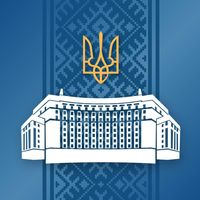The Tug of War: U.S. Politics and Global Diplomacy in the Russia-Ukraine Conflict
September 12, 2024, 10:10 pm

Location: United States, District of Columbia, Washington
Employees: 10001+
Founded date: 2000
The Russia-Ukraine war has become a chessboard of international politics, with each move reverberating across continents. In the U.S., the political landscape is charged. Donald Trump, the Republican nominee, has taken a controversial stance. He insists that the war should end but stops short of endorsing Ukraine's victory. His claim that he could broker peace in a day raises eyebrows. Critics fear that his approach might lead to Ukraine conceding territory to Russia, a move that could undermine its sovereignty.
Trump's history with Russia complicates matters. He has praised Vladimir Putin's tactics, calling them "genius." This admiration contrasts sharply with his dismissive comments about Ukrainian President Volodymyr Zelenskyy. The Biden administration, on the other hand, frames the conflict as a crucial battle for democracy. They argue that a Ukrainian victory is essential to deter further Russian aggression in Europe.
As the U.S. navigates its internal political battles, another player emerges on the global stage: India. Prime Minister Narendra Modi has positioned India as a potential peacemaker. His recent interactions with both Putin and Zelenskyy suggest a delicate balancing act. Modi emphasizes dialogue and diplomacy, asserting that "this is not an era of war." His approach stands in stark contrast to the more aggressive postures of Western leaders.
Putin has recognized India's role, inviting Modi to a bilateral meeting at the upcoming BRICS Summit. This invitation highlights India's growing influence in global affairs. Modi's stance is clear: India is not neutral. It seeks peace but maintains strong ties with Russia, its "all-weather friend." This relationship complicates India's position, especially as it faces pressure from Western nations to take a firmer stance against Russia.
The war has resulted in significant human suffering. Reports indicate that over 11,700 civilians have lost their lives. Each casualty is a stark reminder of the conflict's brutality. Modi's visit to Ukraine was marked by a poignant moment. As he expressed sorrow over the loss of innocent lives, a Russian missile struck a children's hospital. This tragic timing drew sharp criticism from Zelenskyy, who felt betrayed by India's apparent support for Russia.
The U.S. political scene is equally fraught. Trump’s debate performances reveal a candidate eager to assert his foreign policy credentials. He links the timing of Harris's diplomatic efforts to the onset of the war, suggesting a failure of leadership. However, the Biden administration counters that intelligence assessments had already indicated an imminent invasion. The narrative of blame shifts like sand in the wind, with each side attempting to frame the story to its advantage.
In this geopolitical tug of war, the stakes are high. A Ukrainian defeat could embolden Putin, potentially leading to further incursions into Europe. The Biden administration has rallied international support for Ukraine, emphasizing the need for unity against authoritarianism. Yet, Trump's vision of peace through negotiation raises questions. Would he sacrifice Ukraine's territorial integrity for a quick resolution?
India's role as a mediator is intriguing. Modi's diplomatic overtures may offer a glimmer of hope. His calls for dialogue resonate with many who yearn for an end to the bloodshed. However, skepticism remains. Can India truly bridge the divide between Russia and Ukraine? The complexity of the situation demands more than just good intentions.
As the BRICS Summit approaches, all eyes will be on Modi. His ability to navigate this treacherous landscape could redefine India's position on the world stage. The question looms: can India emerge as a credible peacemaker, or will it be seen as a pawn in a larger game?
The interplay of U.S. politics and global diplomacy creates a volatile mix. Each leader's actions ripple through the fabric of international relations. The Russia-Ukraine war is not just a regional conflict; it is a litmus test for democracy, sovereignty, and the balance of power.
In the end, the resolution of this conflict may hinge on more than just military might. It will require a concerted effort from global leaders to prioritize peace over power. The world watches, waiting for a sign that dialogue can triumph over discord. The stakes are high, and the consequences of failure could be dire. As the chess pieces move, the hope for a peaceful resolution remains a fragile dream.
Trump's history with Russia complicates matters. He has praised Vladimir Putin's tactics, calling them "genius." This admiration contrasts sharply with his dismissive comments about Ukrainian President Volodymyr Zelenskyy. The Biden administration, on the other hand, frames the conflict as a crucial battle for democracy. They argue that a Ukrainian victory is essential to deter further Russian aggression in Europe.
As the U.S. navigates its internal political battles, another player emerges on the global stage: India. Prime Minister Narendra Modi has positioned India as a potential peacemaker. His recent interactions with both Putin and Zelenskyy suggest a delicate balancing act. Modi emphasizes dialogue and diplomacy, asserting that "this is not an era of war." His approach stands in stark contrast to the more aggressive postures of Western leaders.
Putin has recognized India's role, inviting Modi to a bilateral meeting at the upcoming BRICS Summit. This invitation highlights India's growing influence in global affairs. Modi's stance is clear: India is not neutral. It seeks peace but maintains strong ties with Russia, its "all-weather friend." This relationship complicates India's position, especially as it faces pressure from Western nations to take a firmer stance against Russia.
The war has resulted in significant human suffering. Reports indicate that over 11,700 civilians have lost their lives. Each casualty is a stark reminder of the conflict's brutality. Modi's visit to Ukraine was marked by a poignant moment. As he expressed sorrow over the loss of innocent lives, a Russian missile struck a children's hospital. This tragic timing drew sharp criticism from Zelenskyy, who felt betrayed by India's apparent support for Russia.
The U.S. political scene is equally fraught. Trump’s debate performances reveal a candidate eager to assert his foreign policy credentials. He links the timing of Harris's diplomatic efforts to the onset of the war, suggesting a failure of leadership. However, the Biden administration counters that intelligence assessments had already indicated an imminent invasion. The narrative of blame shifts like sand in the wind, with each side attempting to frame the story to its advantage.
In this geopolitical tug of war, the stakes are high. A Ukrainian defeat could embolden Putin, potentially leading to further incursions into Europe. The Biden administration has rallied international support for Ukraine, emphasizing the need for unity against authoritarianism. Yet, Trump's vision of peace through negotiation raises questions. Would he sacrifice Ukraine's territorial integrity for a quick resolution?
India's role as a mediator is intriguing. Modi's diplomatic overtures may offer a glimmer of hope. His calls for dialogue resonate with many who yearn for an end to the bloodshed. However, skepticism remains. Can India truly bridge the divide between Russia and Ukraine? The complexity of the situation demands more than just good intentions.
As the BRICS Summit approaches, all eyes will be on Modi. His ability to navigate this treacherous landscape could redefine India's position on the world stage. The question looms: can India emerge as a credible peacemaker, or will it be seen as a pawn in a larger game?
The interplay of U.S. politics and global diplomacy creates a volatile mix. Each leader's actions ripple through the fabric of international relations. The Russia-Ukraine war is not just a regional conflict; it is a litmus test for democracy, sovereignty, and the balance of power.
In the end, the resolution of this conflict may hinge on more than just military might. It will require a concerted effort from global leaders to prioritize peace over power. The world watches, waiting for a sign that dialogue can triumph over discord. The stakes are high, and the consequences of failure could be dire. As the chess pieces move, the hope for a peaceful resolution remains a fragile dream.
